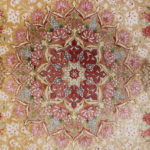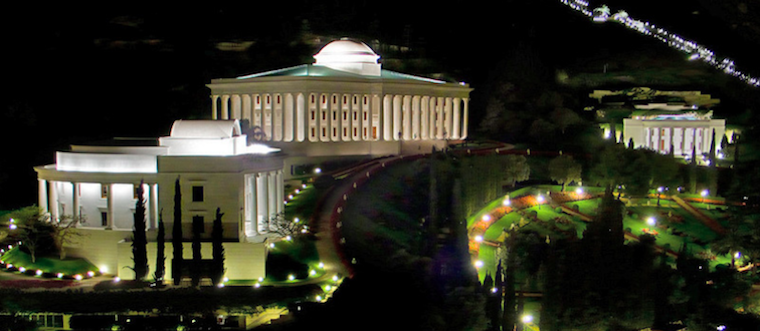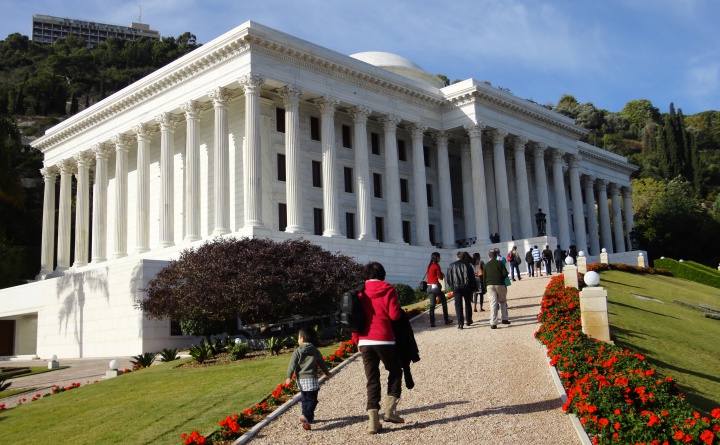
The World and the Self

For a work about the world as a whole, the Tablet of the World is personal: intensely personal. It reflects the fact, commented on in a previous article – that the personal is universal. The world and the self are intimately interconnected.
As in many passages of Bahá’u’lláh’s writings old concepts are recast — suddenly providing new insight – new inspiration. Like the prophets of old: like Jesus in the Temple or Muhammad cleansing the Kaaba, Bahá’u’llah casts down false idols. The idols that Baha’u’llah casts down are not physical however. They are idols in our hearts. And in the Tablet of the World Bahá’u’lláh calls us to free ourselves from their harmful domination.
Arise, O people, and, by the power of God’s might, resolve to gain the victory over your own selves, that haply the whole earth may be freed and sanctified from its servitude to the gods of its idle fancies—gods that have inflicted such loss upon, and are responsible for the misery of their wretched worshippers. These idols form the obstacle that impedeth man in his efforts to advance in the path of perfection. We cherish the hope that the Hand of divine power may lend its assistance to mankind and deliver it from its state of grievous abasement.[1]
Demonic forces, so vivid in human imagination – personified in the past as Satan and dark angels are also seen to lack external reality. They are rather realities within the human heart – shadows of our own weaknesses. Where they have capacity to inflict harm.
Watch over yourselves, for the Evil One is lying in wait, ready to entrap you. Gird yourselves against his wicked devices, and, led by the light of the name of the All-Seeing God, make your escape from the darkness that surroundeth you. Let your vision be world-embracing, rather than confined to your own self. The Evil One is he that hindereth the rise and obstructeth the spiritual progress of the children of men.[2]
Again the self is implicated in such phenomena. As Baha’u’llah makes clear it is an orientation to all humankind that frees us of such forces.
Do not busy yourselves in your own concerns; let your thoughts be fixed upon that which will rehabilitate the fortunes of mankind and sanctify the hearts and souls of men. This can best be achieved through pure and holy deeds, through a virtuous life and a goodly behaviour.[3]
Abdu’l Baha’s reflections on the progress of the human soul, cited in a previous article, is pertinent:
Every imperfect soul is self-centered and thinketh only of his own good. But as his thoughts expand a little he will begin to think of the welfare and comfort of his family. If his ideas still more widen, his concern will be the felicity of his fellow citizens; and if still they widen, he will be thinking of the glory of his land and of his race. But when ideas and views reach the utmost degree of expansion and attain the stage of perfection, then will he be interested in the exaltation of humankind. He will then be the well-wisher of all men and the seeker of the weal and prosperity of all lands. This is indicative of perfection.[4]
(This article is the 187th in a series of what I hope will be 200 articles in 200 days for the 200th anniversary of the birth of Bahá’u’lláh. The anniversary is being celebrated around the world on 21 and 22 October 2017, The articles are simply my personal reflections on Bahá’u’lláh’s life and work. Any errors or inadequacies in these articles are solely my responsibility.)







